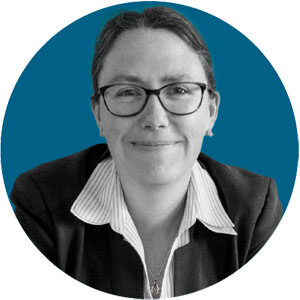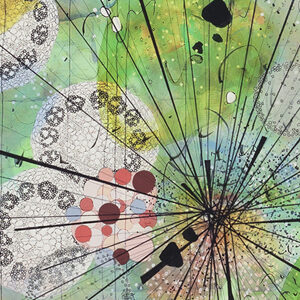In August 2017, just a few days after a white supremacist mob marched on the University of Virginia, one of their most eminent and committed professors, Chad Wellmon, wrote a provocative piece for the Chronicle of Higher Education.1 Wellmon found himself personally devastated by the events, while also deeply skeptical that his university could respond in any morally significant way to the moment. “Universities cannot impart comprehensive visions of the good. They cannot provide ultimate moral ends . . . most university leaders lack the language and moral imagination to confront evils such as white supremacy. They lack those things not because of who they are, but . . . because of what the modern research university has become. Such an acknowledgment is also part of the moral clarity that we can offer to ourselves and to our students.”
For Wellmon, it is up to churches, civic organizations, cultural groups and the like to direct us toward greater courage, love, and moral responsibility—virtues we will certainly need to confront racism. Universities are caretakers of other, far more limited virtues, namely the ones concerned with discovery and promulgation of knowledge. Universities are not built for moral functions. We might call this the “skeptical position” on virtue and higher education.
Wellmon is not the first faculty leader to argue that universities are unsuited to be institutions of moral development. John Mearsheimer gave his famous (infamous?) “Aims of Education” speech at the University of Chicago twenty years earlier, making a similar point to his students: “the University also makes little effort to provide you with moral guidance. Indeed, it is a remarkably amoral institution. I would say the same thing, by the way, about all other major colleges and universities in this country.” 2 I remember stumbling upon Mearsheimer’s speech while still an undergraduate at Virginia. I was chairwoman of the university’s storied Honor Committee and I recall thinking, “that may be true of Chicago, but Virginia definitely has a position on virtue.”
I’m now a faculty member myself, at Notre Dame. I continue to find the skeptical position puzzling. I think there are three different assumptions bubbling under the surface. Identifying and challenging these assumptions might help us see more clearly what it means for a modern university to have a moral function.
First, the skeptics might be assuming that if the university cannot serve a function well on its own, that function cannot be part of the mission of the university. Universities are transient places; students come and go in short cycles. More substantively, universities are committed to radical openness and following the arguments where they lead. We might think universities need to be free to study moral developments in surrounding society and therefore shouldn’t be in the business of also meddling in those developments.
But no institution, not even the Ivory Tower, is an island. It’s worth noting that even when it comes to the uncontroversial epistemic virtues like discovery, universities must collaborate with other institutions to promote these goods. We have to work alongside journalists and the courts to safeguard free expression and pursuit of the truth within our democracy. We have to work with industry, government, and philanthropic organizations to propel research. Why not think that working alongside families, faith communities, and cultural and political organizations, we promote moral goods? The modern university is not a telescope pointed at some distant planet, Society. It is, rather, a well-evolved reactor for energizing the ideas that power society. And it is a core where some of the key fuel elements—foundational ideas in math, science, philosophy, literature, and the arts—are stored. I suspect this power is why universities are often the theaters in which major moral disagreements take place, sometimes in shocking ways, as the choice of the University of Virginia for the Unite the Right rally demonstrated.
Other skeptics might assume that the modern university is not amoral, but rather that it is morally corrupt, and therefore not in a position to support anyone’s moral development. A cottage industry has emerged recently for scholars at elite research universities arguing that the educations they offer deform the young and corrupt the common good. It started with Bill Deresiewicz at Yale and his 2008 essay3—followed quickly by a book—arguing that the ivy league is an engine for producing “excellent sheep.” Following on this trend were Michael Sandel (Harvard) and Daniel Markovits (also Yale) writing books arguing that the credentialing system at major universities serves primarily to prop up an elite increasingly divorced from the kind of practical wisdom necessary to a good society.
Faculty cynicism abounds. Some of it is justified. Much of it seems reactionary. It is telling that neither Sandel nor Markovits have sought to leave the institutions they consider to be morally troubled or renounce the benefits of their academic pedigrees. The most vocal proponents of
these corruption charges tend to come from backgrounds where they would enjoy high levels of privilege pretty much anywhere they’d go in American society. Meanwhile, some of the most optimistic folks I know about the power of the university to be morally transformative are precisely the people who decades ago would have been excluded on racial or gendered grounds from the ivy-covered social engines.
More fundamentally, the corruption charge only has its bite because we think universities should be promoting moral goods. The challenge isn’t whether universities should care about virtue, but rather whether they have chosen the correct moral goals and the most effective tactics, given their functions. Which brings us to a final potential source of skepticism. Universities are committed to the relentless pursuit of knowledge. Skeptics might think there is no underlying knowledge to discover about what constitutes a better or worse kind of life or a better or worse kind of society. These are philosophical ideas that we negotiate; there are no right or wrong answers outside of the results of this negotiation.
Is this view about the nature of moral virtue and powerful institutions true? Well, we’ve been studying and debating it since at least the 4th century BC, when the first serious historian in the Western world reported to us about the Athenians debating with the Melians about the nature of morality. Powerful Athens planned to overrun tiny Melos, arguing that the strong do whatever they will and the weak suffer whatever they must. Melos, in turn, argued that there is a moral logic that governs us all regardless of who happens to have the bully pulpit in any particular era. Who is right?
It is a question we try to answer—where else—but at universities.
Notes
1. Chad Wellmon, “For Moral Clarity, Don’t Look to Universities,” The Chronicle of Higher Education, August 14, 2017, chronicle.com/article/for-moral-clarity-dont-look-to-universities.
2. John Mearsheimer, Aims of Education Address 1997, The University of Chicago, college.uchicago.edu/student-life/aims-education-address-1997-john-j-mearsheimer.
3. William Deresiewicz, “The Disadvantages of an Elite Education,” The American Scholar, June 1, 2008, theamericanscholar.org/the-disadvantages-of-an-elite-education.

















